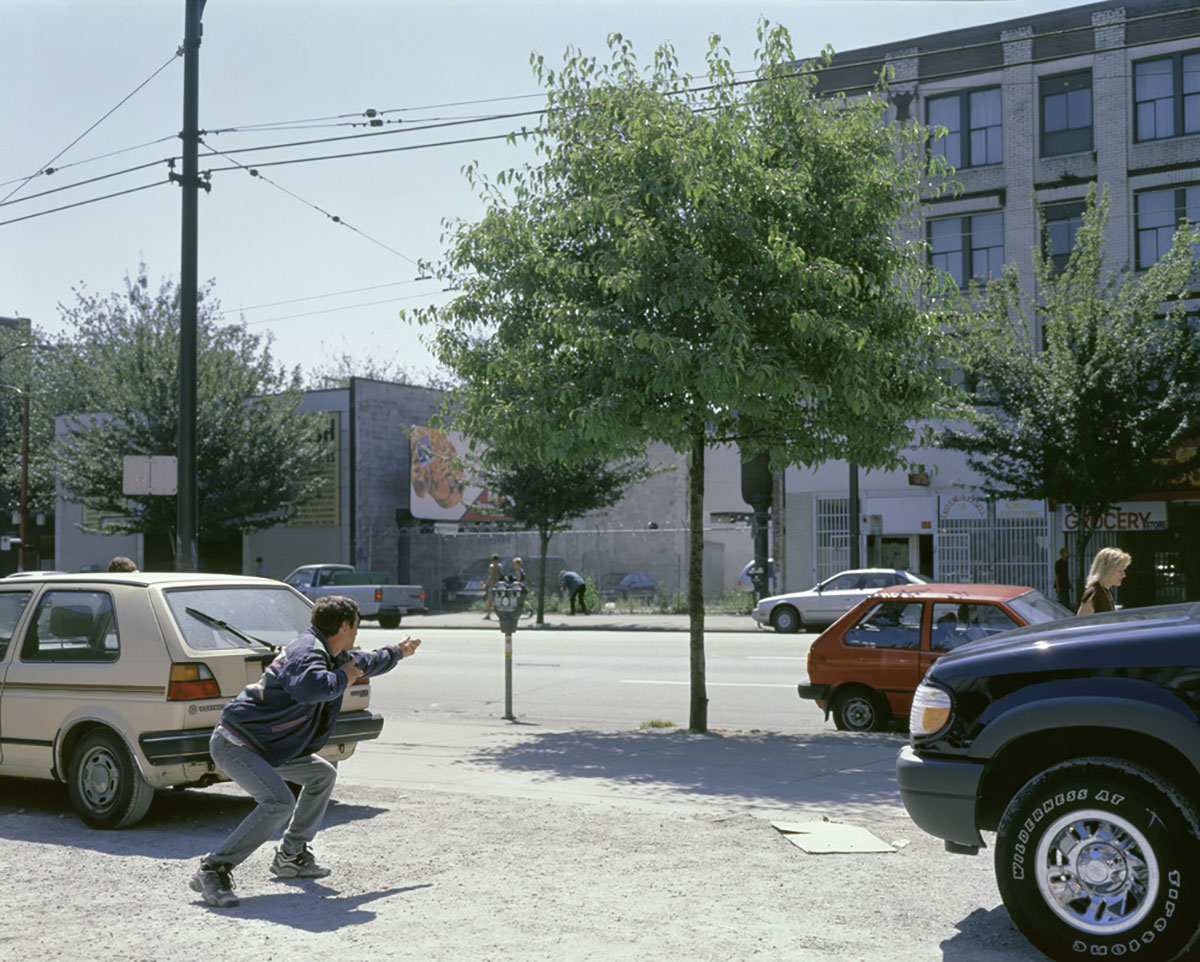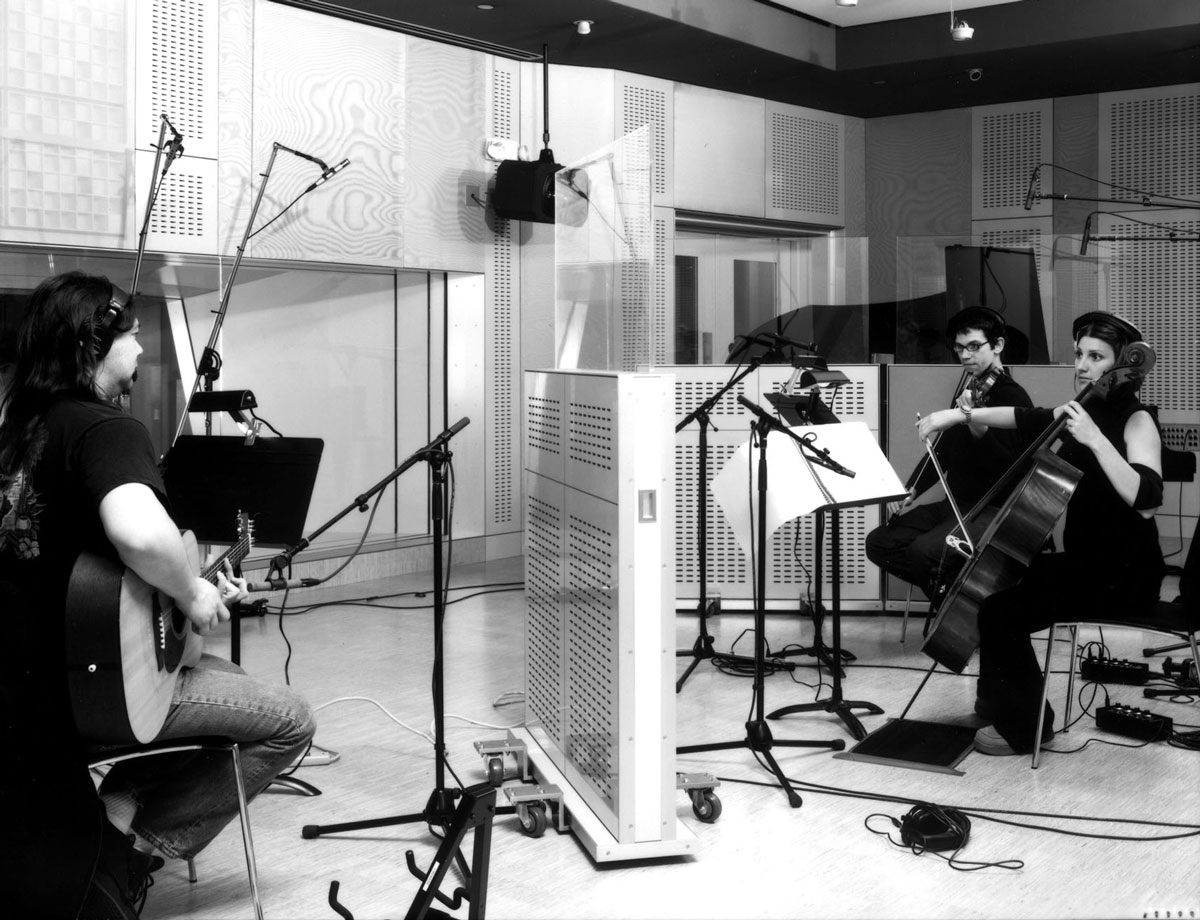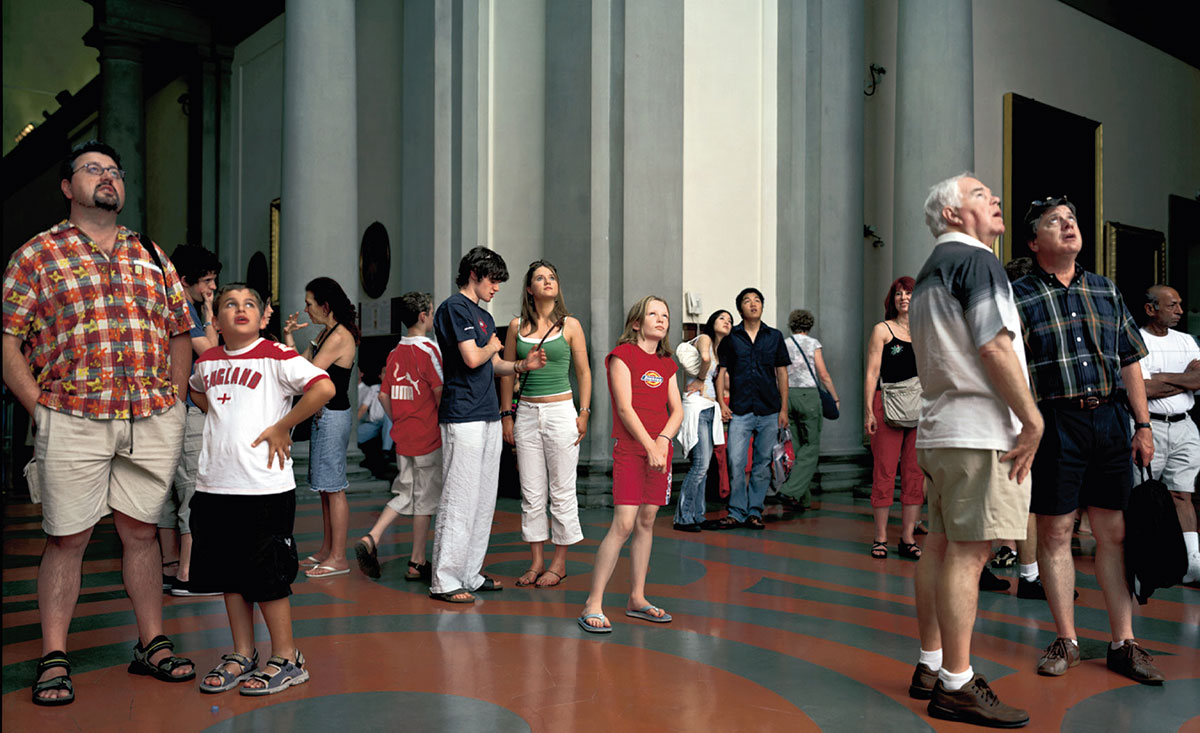TRIBUTE: On Stage at mumok
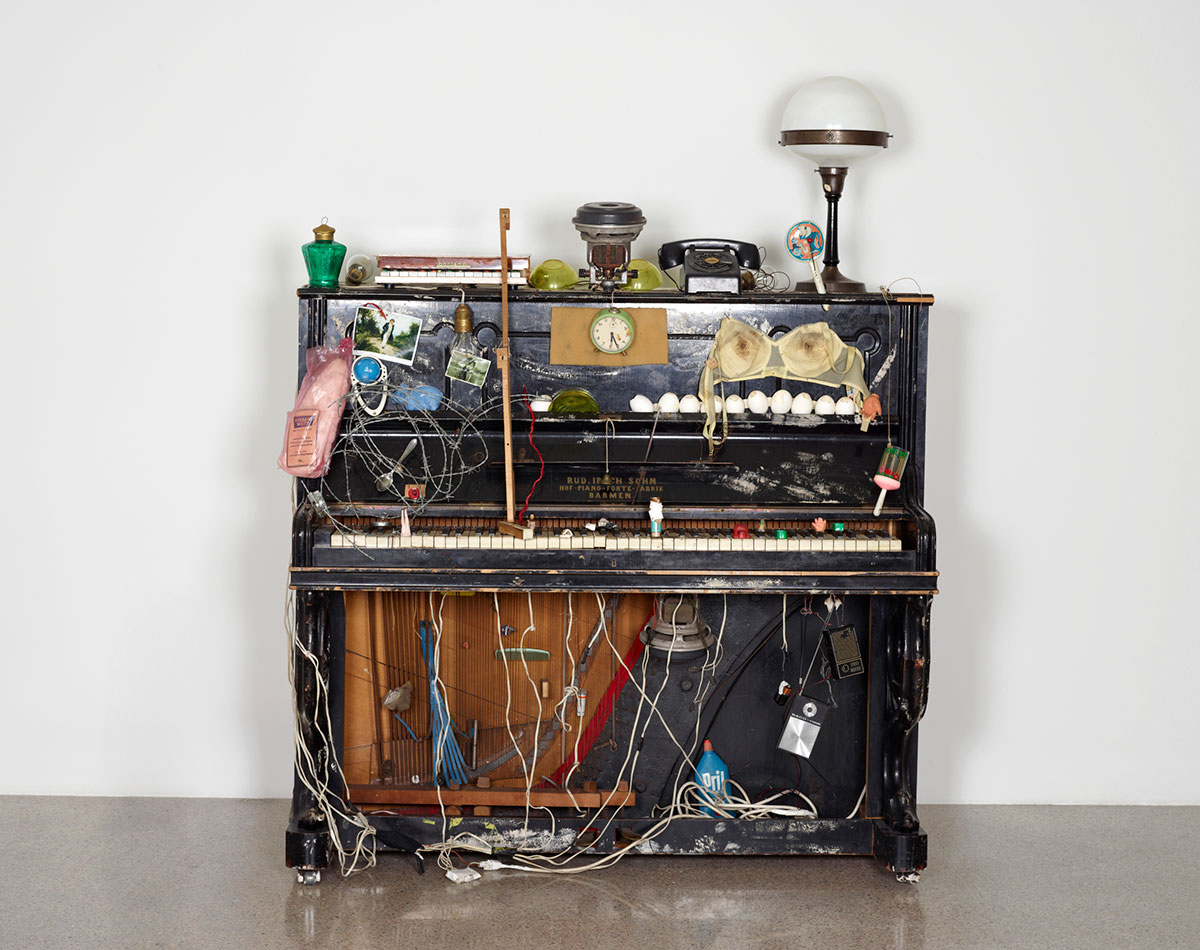 Exhibitions in general offer stages on which artists can present their works, and thus form a vital part of their public presence and livelihood. Taking up this theme, the exhibition “On Stage” focuses on works produced since circa 1960–most of them from the mumok collection–that feature explicitly stage-like settings and theatrical role-playing.
Exhibitions in general offer stages on which artists can present their works, and thus form a vital part of their public presence and livelihood. Taking up this theme, the exhibition “On Stage” focuses on works produced since circa 1960–most of them from the mumok collection–that feature explicitly stage-like settings and theatrical role-playing.
By Dimitris Lempesis
Photo: mumok Archive
The exhibition “On Stage” explores the various theatrical and stage-related forms of expression in art since the 1960s, when a neo-avant-garde critical of tradition began focusing on performative and actionist art forms that endowed artists with a stage-like presence, often in front of an audience. The Viennese Actionism with its provocative and time-critical theatricality is just as much a part of this as the Vienna Group, whose literary cabaret stands firmly in the tradition of Dadaist theater, or the Fluxus-Movement with its media crossovers. Alongside these male dominated art forms, a feminist scene established itself that portrayed and challenged the effects of patriarchal social hierarchies on gender roles. They form the historical basis for more recent positions that oppose conservatively determined gender roles and images of identity, as well as racism and colonialism. Other thematic areas include musical and cinematic productions, (self-)representations and rituals of the art business as well as works in which viewers become actors. Hierarchies and Resistance: Deviating from traditional forms of art and theater—and also deliberately running counter to them—new performative artforms emerged, many of them in front of a live audience, in a time of artistic and social upheaval around 1960. Among them were Vienna Actionism, for instance the Orgies Mysteries Theater of Hermann Nitsch, as well as the literary revues of the Vienna Group, which stand firmly in the tradition of Dadaist theater, or the media crossovers of Fluxus. Alongside these male-dominated artforms, a feminist scene established itself that challenged the effects of patriarchal society on gender roles. Artists like VALIE EXPORT, Marina Abramović, Gina Pane, or KwieKulik subjected themselves to procedures, some of which were very painful, or used metaphoric images and actions to probe the interplay of power and helplessness. More recent positions, such as those of Carola Dertnig or the activist group MATHILDA, reference the air of machismo surrounding Vienna Actionism. Identity Games and Gender Roles: When Cindy Sherman slips into ever-changing social roles to address the fleeting quality, the vicissitudes, and the media-boundness of identity, or when Nan Goldin, Jakob Lena Knebl/Ashley Hans Scheirl, Shadafarin Ghadirian, Sanja Iveković, or Wolfgang Tillmans push against the grain of gender roles, they touch on existential questions in which political and private aspects interweave. The history of how a racist and colonial past has been received in the present becomes visible in works by Destiny Deacon or Kara Walker. Absalon, Tom Burr, Gilbert & George, Bruno Gironcoli, Maria Lassnig, Ingeborg Strobl, or Tobias Pils in turn confront and stage the physical and individual with existential sordidness. Art Scene and Puppet Theater: A large-format painting by Jörg Immendorff shows artists and art-industry stakeholders from Modernism onward posing for a group portrait, while art history is presented as a process of evaluation. Artists like Anna Artaker, DIE DAMEN, and Katrin Plavčak call attention to social hierarchies and their impact on art-historical presence and absence. Floating images of important figures from the world of politics, science, and philosophy, Anna Boghiguian presents a figure theater that bears witness to revolutionary events and of power and destruction. In a cinematic stage play, Jeroen de Rijke/Willem de Rooij show a situation of upper-class small talk, in which sexual, colonial, and capitalist desires come to the fore. Viewers as Actors: As art raised awareness of theories of perception as a basis for interpreting and reading art, the role of the viewer has incrementally gained importance as an artistic motif since the 1960s. Numerous works of art serve as a stage for the viewers and their active role in the perception process. Emblematic of this is a mirror work by Michelangelo Pistoletto or Michael Schuster’s installation “Nikon Autofokusfalle”, in which visitors are photographed by an automatic camera and become the subjects of a photograph ready for exhibition. Thomas Struth’s photographs also turn museum visitors and their visual experiences in churches and museums into the actual subject of the work. In Concert: Stage-centered art also includes performative works that turn the spotlight on music in various compositions and types of performance. From works of Viennese Actionism and major Fluxus works by Nam June Paik or Katalin Ladik’s experimental vocal performances, the exhibition spans into the present, with Mathias Poledna’s filmic portrayal of a historic sound studio or Cosima von Bonin’s stage arrangement referencing the hippie scene and its mood swings from party to breakdown. With Black Bus Stop, Kevin Jerome Everson and Claudrena N. Harold explore the history and cultural identity of African Americans that has been shaped by dance and song in the student milieu. Casting. Shooting. Screening : Social roles and political conflicts are reflected in works that contain cinematic stagings and castings. Omer Fast’s “The Casting”, for instance, addresses America’s role in the Iraq War by way of an interview with a veteran, and at the same time drives home the function of media in our education about history. Rashid Masharawi sheds light on a situation that is precarious in terms of its political and human toll by casting protagonists in his video Waiting and asking them to portray a state of waiting. In her castings of young women, Constanze Ruhm traces the history of Italian feminism and its significance for the present day. Tracey Moffatt references the Western genre and Hollywood melodramas in her photo works to examine social restrictions against Australian Aborigines
Works by: Marina Abramović, Absalon, Anna Artaker, Anna and Bernhard Blume, Anna Boghiguian, Tom Burr, Günter Brus, Heinz Cibulka, Keren Cytter, Josef Dabernig, Destiny Deacon, Saskia De Boer, Carola Dertnig, DIE DAMEN (Ona B., Evelyne Egerer, Birgit Jürgensen, Ingeborg Strobl), Braco Dimitrijević, Kevin Jerome Everson, VALIE EXPORT, Öyvind Fahlström, Omer Fast, Virginia Fraser, Gelatin/seit 2005 Gelitin, Shadi Ghadirian, Gilbert & George, Bruno Gironcoli, Nan Goldin, Felix Gonzalez-Torres, Claudrena N. Harold, David Hockney, Jörg Immendorff, Sanja Iveković, Birgit Jürgenssen, Jakob Lena Knebl, Kurt Kren, KwieKulik (Sofia Kulik, Przemylaw Kwiek), Katalin Ladik, Maria Lassnig, Rashid Masharawi, MATHILDA, Paul McCarthy, Tracey Moffatt, Manfred Montwé, Nicholas Monro, Peter Moore, Charlotte Moorman, Otto Muehl, Hermann Nitsch, Nam June Paik, Gina Pane, Tobias Pils, Michelangelo Pistoletto, Katrin Plavcak, Mathias Poledna, Emília Rigová, Jeroen de Rijke/Willem de Rooij, Dieter Roth, Gerhard Rühm, Constanze Ruhm, Ashley Hans Scheirl, Markus Schinwald, Ernst Schmidt jr., Michael Schuster, Rudolf Schwarzkogler, Cindy Sherman, Hartmut Skerbisch, Christian Skrein, Ingeborg Strobl, Thomas Struth, Wolfgang Tillmans, kollektiv-wien/Max Weinsberg vorm. Octavian Trauttmansdorff, Zsuzsi Ujj, Cosima von Bonin, Kara Walker, Jeff Wall, Andy Warhol, Peter Weibel, Stefan Wewerka, Wiener Gruppe (Friedrich Achleitner, H.C. Artmann, Konrad Bayer, Oswald Wiener, Gerhard Rühm), Heimo Zobernig
Photo: Nam June Paik, Klavier Intégral, 1958 / 1963, 136 x 140 x 65 cm, Fluxus-Klavier präpariert mit verschiedenen Materialien / Fluxus-Piano prepared with different materials, mumok – Museum moderner Kunst Stiftung Ludwig Wien, Former Hahn Collection, Cologne acquired in 1978, © Nam June Paik Studios
Info: Curator: Rainer Fuchs, mumok (museum moderner kunst stiftung ludwig wien), Museumsplatz 1, Vienna, Austria, Duration: 15/3/2023-7/1/2024, Days & Hours: Tue & Thu-Sun 10:00-18:00, Wed 10;00-20:00, www.mumok.at/en
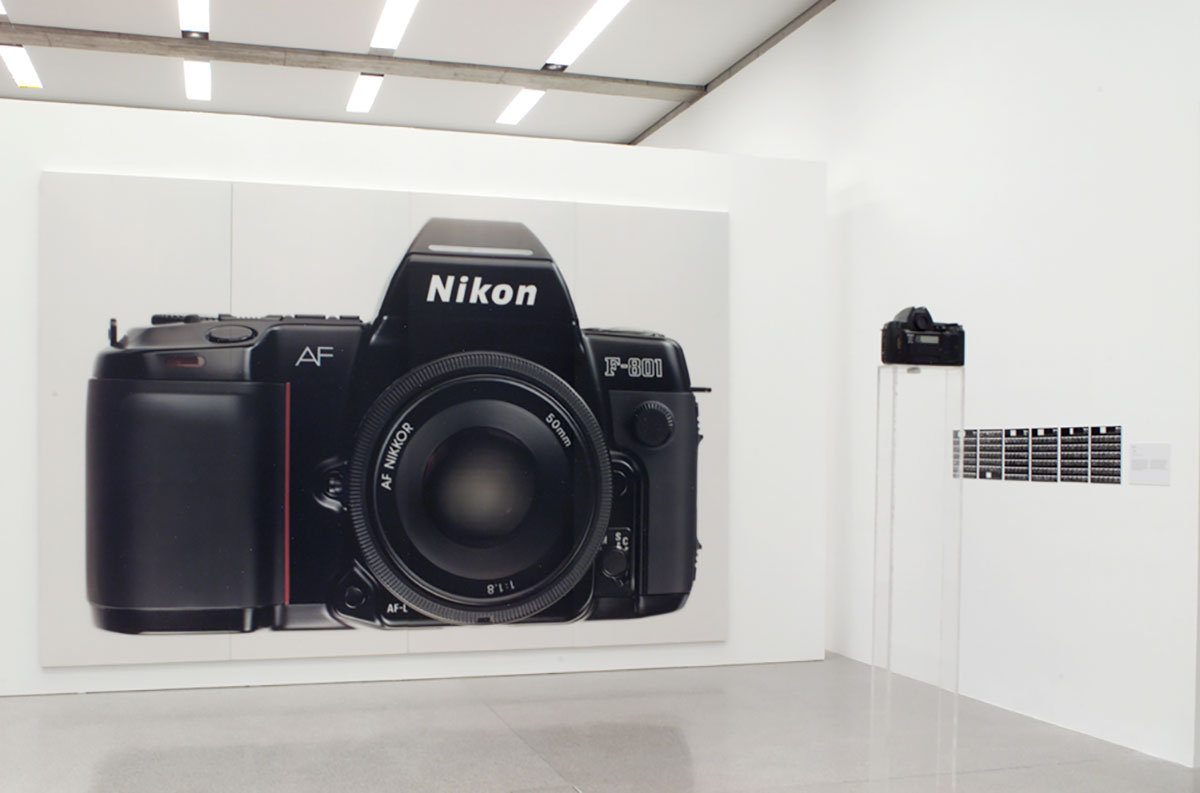
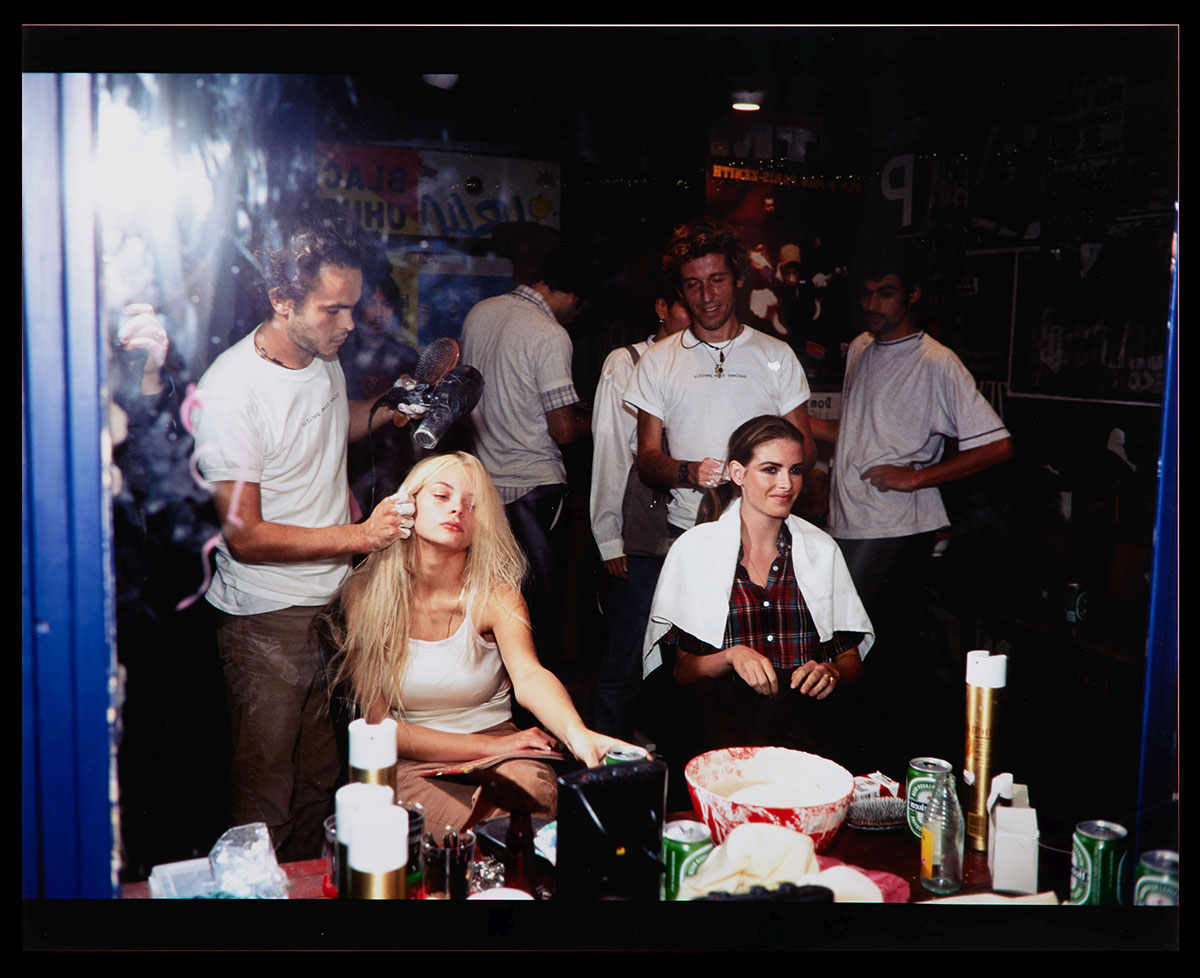
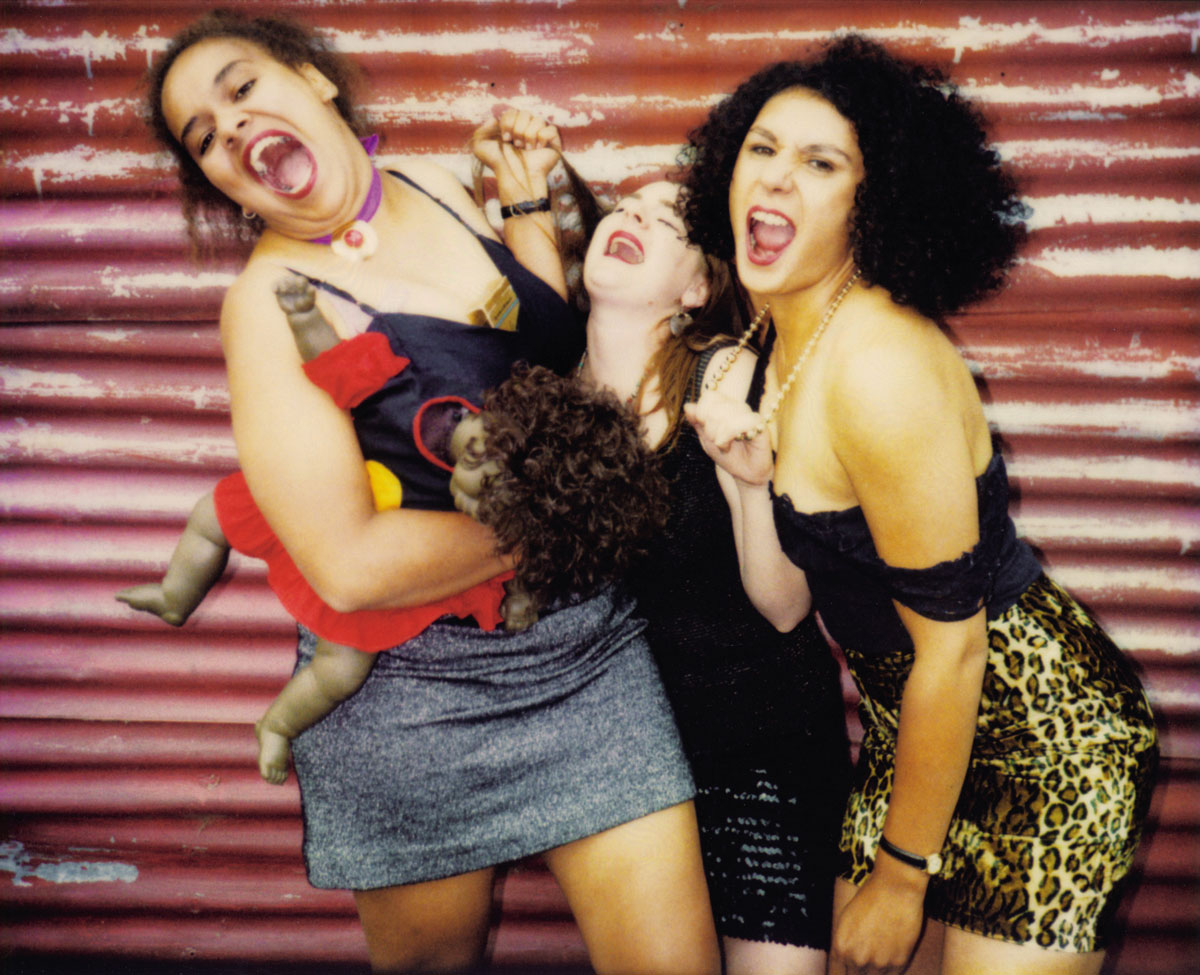
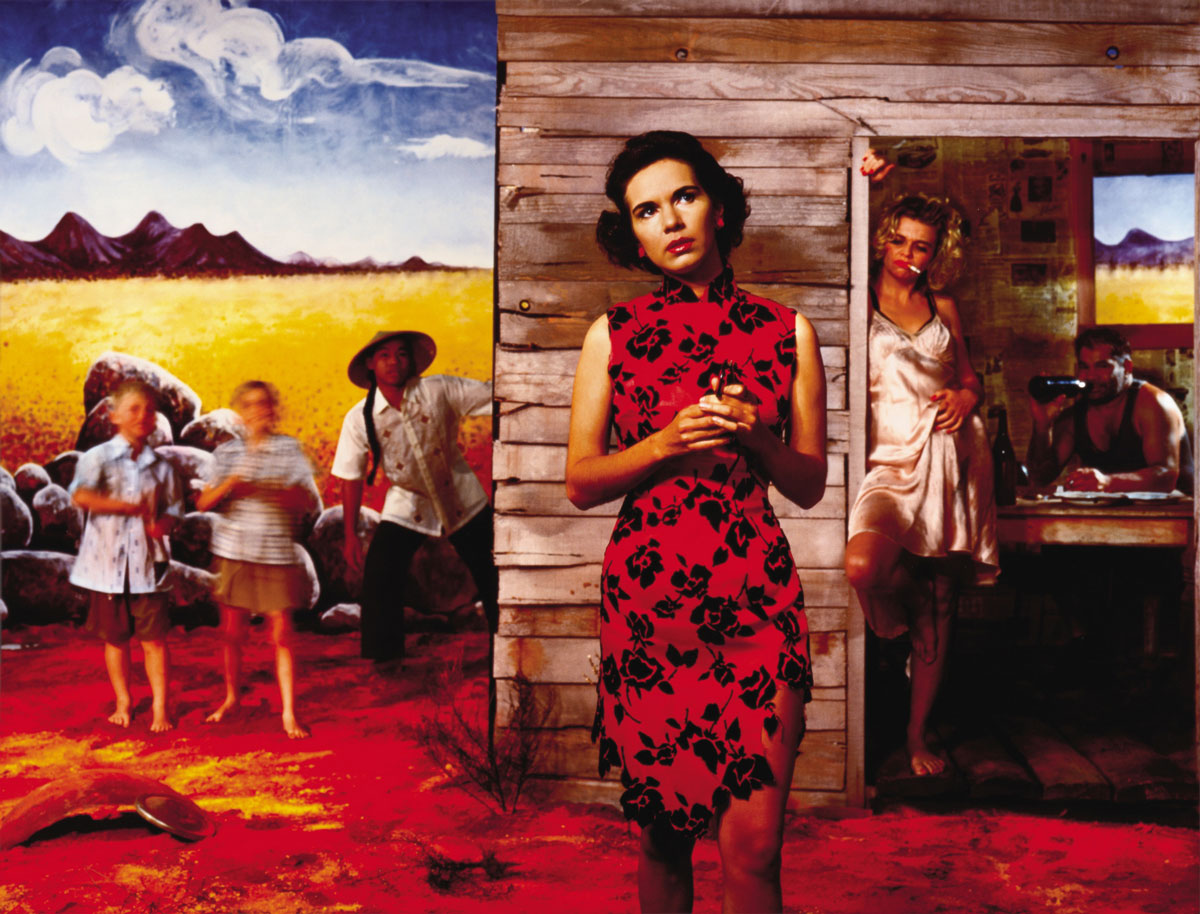
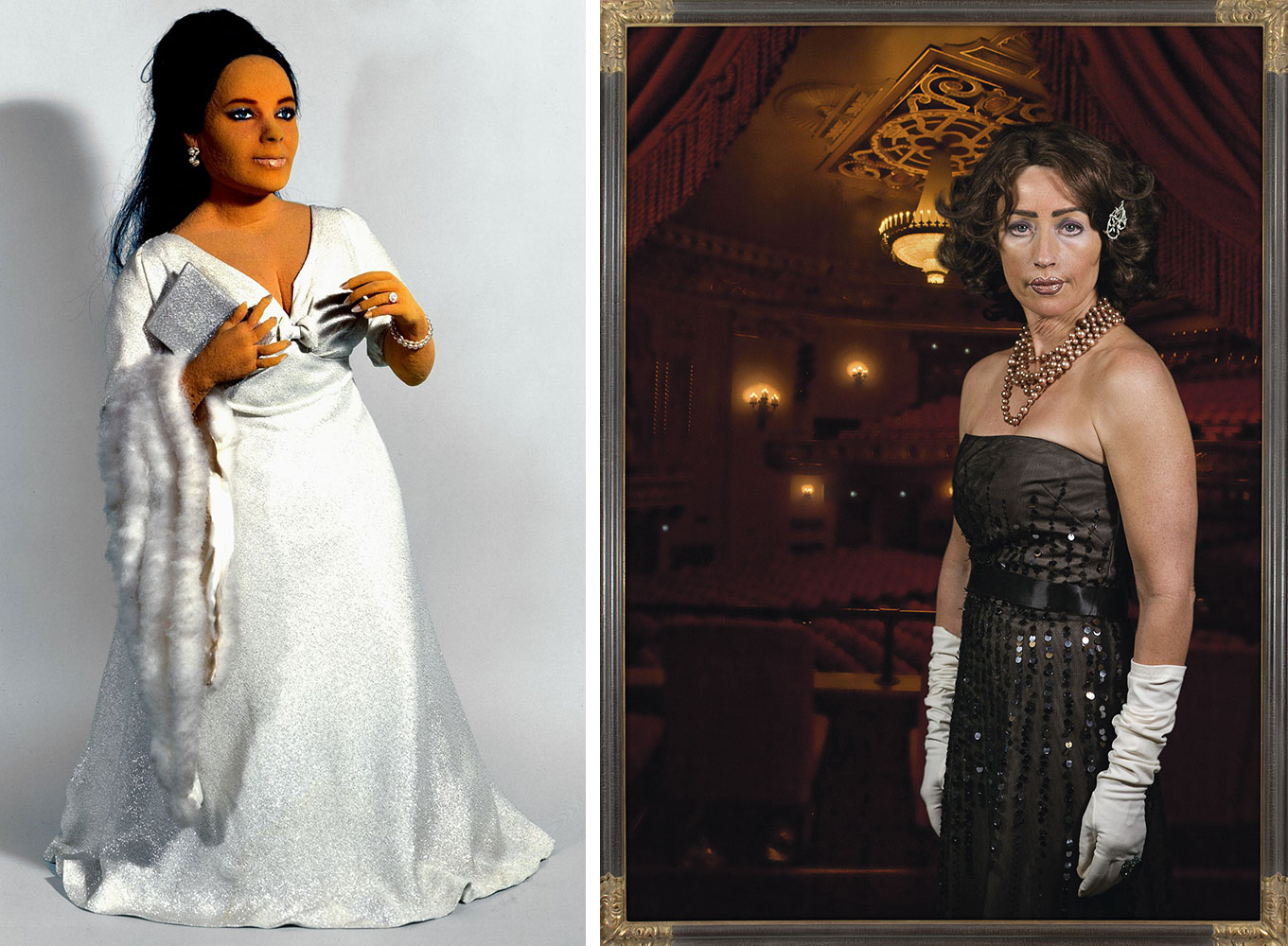
Right: Cindy Sherman, Untitled # 464, 2008, Colour photograph, 214.3 x 152.4 cm, mumok – Museum moderner Kunst Stiftung Ludwig Wien, / on loan from the Austrian Ludwig Foundation, since 2010, © Cindy Sherman
